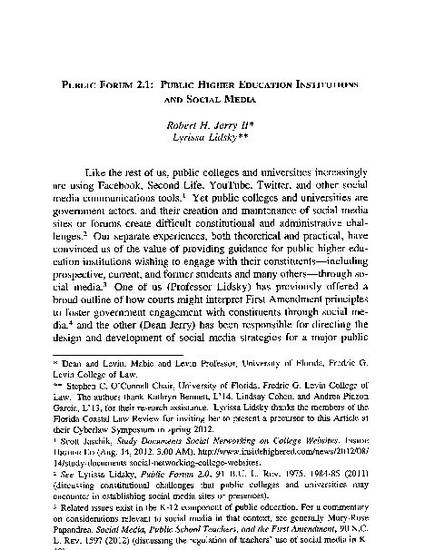
Like most of us, public colleges and universities increasingly are communicating via Facebook, Second Life, YouTube, Twitter and other social media. Unlike most of us, public colleges and universities are government actors, and their social media communications present complex administrative and First Amendment challenges. The authors of this article — one the dean of a major public university law school responsible for directing its social media strategies, the other a scholar of social media and the First Amendment — have combined their expertise to help public university officials address these challenges. To that end, this article first examines current and likely future uses of social media in higher education and then provides both a map of the complex terrain of First Amendment doctrine and practical guidance for navigating it. As part of this guidance, this article explains how different social media policies and practices are likely to affect public universities' attempts to maintain civil discourse in the forums they create. Ultimately, this article seeks to assist and encourage public universities to engage their constituencies through social media in ways that improve governance, advance their institutional missions, and promote public discourse.
